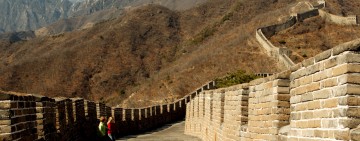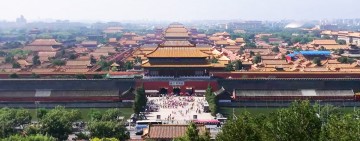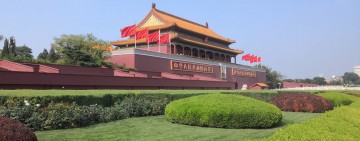A Quick Guide to Chinese Currency
Last updated on 2020-05-08Travelers to China are often confused by how to refer to Chinese money. In English, some people call it the Chinese "dollar." In Chinese, there are three common names and two symbols in regular use.
The official name for Chinese currency is Renminbi, which literally translates to People's Currency and is abbreviated to RMB. The most widespread international usage is yuan, which is abbreviated to CNY. You can write either CNY 1,000 or RMB 1,000.
The official symbol for the Chinese yuan is ¥. However, in most stores and restaurants in China, the symbol is represented by the Chinese character 元 instead, which is pronounced "yuan." While traveling in China, you will also hear people say "kuai," pronounced “kwai”, which is a local word for yuan.
To further confuse you, there are two names for 1/10th of a Chinese yuan. This can be called one "mao" or one "jiao." Both refer to the same thing: 1/10 of a yuan.
The Chinese yuan or RMB is only used in Mainland China. Hong Kong's currency is the Hong Kong Dollar and Macau's currency is called the Pataca.
Commonly used bank notes and coins in China
At present, banknotes in denominations of one, five, 10, 20, 50, and 100 yuan are in circulation. One yuan coins are also widely used.
Due to inflation, banknotes or coins with a value of less than one yuan, including one jiao and five jiao, are rarely used in China. Many places just round up or down to the nearest whole number. If someone insists on you paying the small change, you can just give them one yuan and tell them to keep the change instead. Learn more about managing payments while traveling in China here.

100 RMB (pronounced yi bai yuan or yi bai kuai)

50 RMB (pronounced wu shi yuan or wu shi kuai)

20 RMB (pronounced er shi yuan or er shi kuai)

10 RMB (pronounced shi yuan or shi kuai)

5 RMB (pronounced wu yuan or wu kuai)

1 RMB (pronounced yi yuan or yi kuai)

1 RMB (pronounced yi yuan or yi kuai)
Exchange rate of Chinese currency
Chinese currency is not freely convertible, which means the exchange rate of RMB is sometimes affected by the government and can be difficult to predict. Basically, the Chinese government doesn’t like to see big fluctuations in the Renminbi’s exchange rate and will intervene from time to time to avoid this. Here you can find the real-time official exchange rate of RMB, which is also the rate that will be used when you exchange RMB while traveling in China.
For people who plan to travel to China in the future, however, if you believe there will be a possible upward or downward trend in the exchange rate between your home currency and RMB in the future, then booking a tour with The China Guide in advance is a good way to minimize exchange loss.
As a travel agency based in Beijing, our quotation is in RMB. If you think your home currency (such as the US dollar or the euro) will be stronger against RMB in the future, then you can pay us as little as 10% of the tour price at the time of booking to lock the price and pay the rest at a favorable exchange rate when your tour gets closer. On the other hand, if you think your currency will be weaker against RMB in the future, then you can pay us up to 100% of the tour price in advance to lock the exchange rate. If you don’t have any idea about the trend of the RMB’s exchange rate, then you can pay 50% of the tour price at the time of booking, and the rest when your tour gets closer. This way, you will actually pay at the average exchange rate. Check out our top ten tours for first-time travelers to China.
—
The China Guide is a Beijing-based travel agency that customizes private tours, educational student tours, and incentive trips across China. We have more than ten years of experience crafting tours for tens of thousands of travelers from the United States, Canada, Australia, the United Kingdom, Germany, France, Spain, and beyond. We promise all our tours have no hidden fees, no shopping stops, no touristy restaurants, just memorable experiences! Learn more about us or contact us to start planning your perfect China trip.




